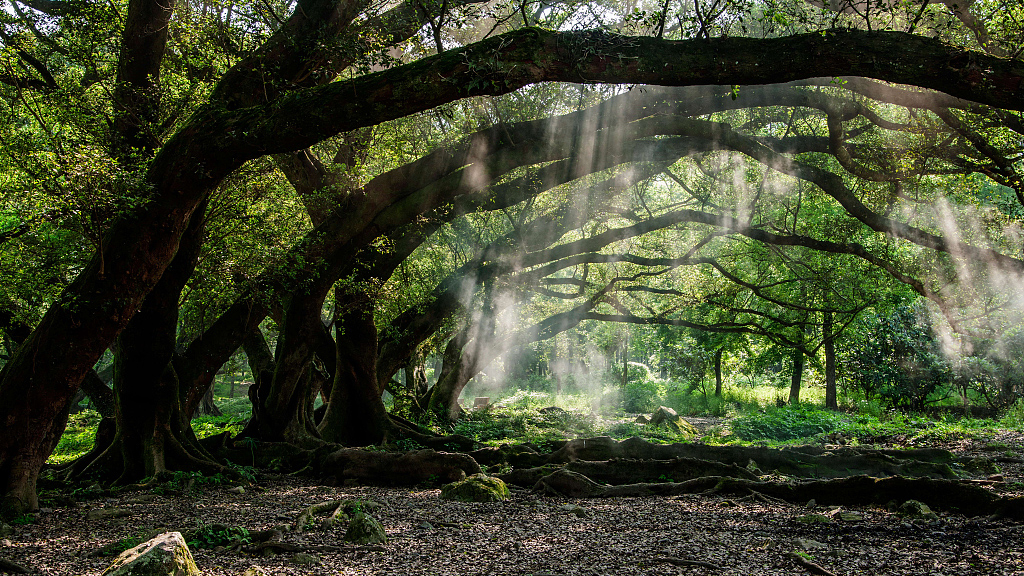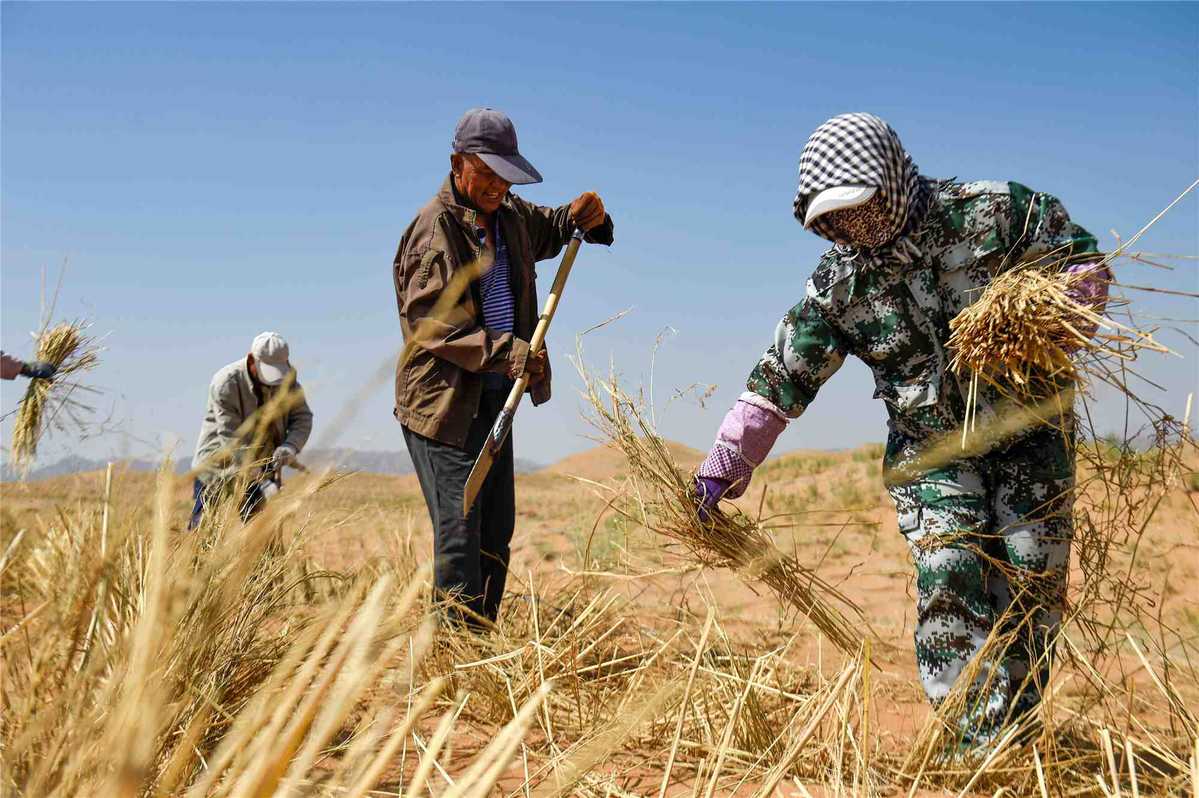
From the People's Daily App.
This is Story in the Story.
China is on track to safeguard its forests. In August last year, it pledged to build a mechanism to protect and restore all the country's natural forests by the end of this year.
In 2018, China became the first country to propose banning all commercial logging in its natural forests, and its total forest area is expected to hit 200 million hectares by 2035 under the plan.
The country's forest coverage has expanded from 8 percent in the early 1950s to 22.96 percent last year, according to the National Forestry and Grassland Administration.
Wildlife has also benefited. In Hainan province, the number of Hainan gibbons classified as "critically endangered" by the Red List of the International Union for Conservation of Nature (IUCN) rose from seven in 1998 to 29 last year.
Today’s Story in the Story looks at the progress China has made in the crucial aspect of going green.

(Photo: VCG)
"We now have 220 million hectares of forest. In particular, 80 million hectares of them are planted, the highest in the world," said Zhang Wei, director of the Department of Ecological Preservation and Restoration of the Administration.
Last year, many new projects were launched. Two forests, each covering 66.7 hectares, were planted in Hebei province, while 26 state-level voluntary tree-planting areas were established in 5 provinces.
28 cities were added to the State Forest City list, raising the number to 194. Furthermore, about 7,500 villages nationwide were awarded the title "State Forest Village"- the first batch in this category.
"We will encourage forest planting on abandoned mining land and barren hills," said Li Shuming, deputy head of the Administration, adding that supervisory work on forest protection and restoration will be included in the local government annual achievement evaluation system.
"We will also encourage residents to tell local government departments about activities that destroy forests. Those responsible will be punished in accordance with the law and regulations."
China has also made great strides in afforestation and combating desertification.
Vice-Premier Sun Chunlan announced that half the country's operational desertified land will be brought under control by the end of this year and full governance will be achieved by 2050.
"China will spare no efforts to help other developing countries, and contribute efforts to combat desertification," she said.

Workers sow grass seeds to prevent desertification in Zhongwei, Ningxia Hui autonomous region, last year. (Photo: Xinhua)
Last July, China also unveiled plans to improve environmental protection by producing guidelines to build a network of nature reserves, aiming to improve protection of such areas and reach world-leading levels of management and protection by 2035.
According to Huang Runqiu, vice-minister of ecology and environment, the country has already founded 2,750 nature reserves, covering a total 1.47 million sq km and accounting for 15 percent of the total land area.
"Together with other natural protected areas, about 18 percent of China's land is under protection," he added. "As a major component, the network of national parks will further contribute to the construction of a beautiful China."
At the Northeast China Tiger and Leopard National Park, which straddles the provinces of Jilin and Heilongjiang, the numbers of Siberian tigers and Amur leopards, both listed as critically endangered by the IUCN, have risen in the past two years.
"As a major component of the country's aim to build a network of nature reserves, construction of national parks will be given top priority in our future work," said Zhang Jianlong, head of the National Forestry and Grassland Administration.
However, there are still many challenges to environmental safety. According to Zhang, the total area of forests, grassland and wetlands is still limited. "Some regions face the degradation of their ecological functions and their ecosystems are fragile," he said.
(Produced by Nancy Yan Xu, Brian Lowe, Lance Crayon and Da Hang. Music by bensound.com. Text from China Daily and CGTN.)


